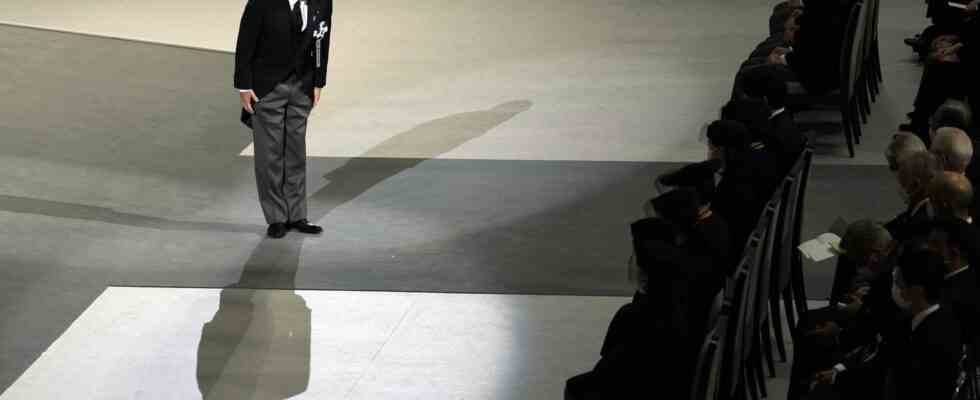Status: 11/30/2022 5:35 p.m
The political legacy of the assassinated ex-Prime Minister Abe weighs heavily on Japan’s Prime Minister Kishida. Trench warfare is raging in his party, and the LDP’s involvement with the Moon sect could cause Kishida to stumble.
German politicians literally handed each other this year in Tokyo. Federal Chancellor Olaf Scholz and Federal President Frank-Walter Steinmeier know and appreciate the Japanese Prime Minister Fumio Kishida.
His cabinet also joined the sanctions against Russia. In terms of foreign policy, Japan is more popular as a partner of the West than it has been for a long time.
But domestically, Kishida is coming under pressure. In the most recent survey by the Kyodo news agency, only 33.1 percent of eligible voters said they had confidence in his cabinet. More than half of the respondents expressed their negative opinion.
Close connection to the Moon sect
For Mieko Nakabayashi, a political scientist at the renowned Waseda University in Tokyo, this is mainly due to the head of government’s demeanor: “People don’t see him as someone who takes the problems seriously.”
The greatest of these problems emerged after the July 8 assassination of ex-Prime Minister Shinzo Abe – the ties of politicians from the ruling LDP to the so-called Moon sect. The assassin said he acted out of hatred for the religious group known in Japan as the “Unification Church.” This ruined his family financially.
Such complaints from those affected have been heard in Japan for decades. Abe nevertheless maintained good contacts with the controversial group, which originally comes from South Korea. After Abe’s death, a whole network came to light. At least 180 LDP MPs have been in contact with the sect.
Dissatisfaction in the population, opponents in the party
Prime Minister Kishida is personally free of such entanglements. “But he didn’t take on the role of chief investigator in this scandal,” observes political scientist Nakabayashi. “Like mushrooms” the speculation about the influence of the Moon sect shot out of the ground in Japan.
Kishida underestimated the outrage in the population when he agreed to a state funeral for Abe in the summer. His decision was a concession to his party’s powerful right wing, which worships Abe as an idol. Kishida belongs to the liberal camp in the LDP. To stay in power, he needs the goodwill of the right-wing conservatives in his own ranks.
But the expensive public act of mourning triggered unexpectedly clear protests and brought criticism to Kishida. His inner-party opponents are now really getting to him. A series of revelations and scandals rocked the government. Information from within the power apparatus has been leaked. Within a month, three ministers had to go.
With the party – or against it?
“Kishida faces a dilemma,” Nakabayashi states. Without the party he could not stay in power. But he could only win back the population if he opposed his party.
A balancing act that could also end in a resignation. Then the West would also lose a valued contact in the Far East.
economic policy under scrutiny
The pressure on the government is also growing in economic and financial policy. It is also shaped by Shinzo Abe’s course. With the so-called “Abenomics”, Japan has been financing economic growth via the printing press for years.
“The model is now reaching its limits,” says Martin Schulz, chief economist at technology group Fujitsu in Tokyo. Unlike in the past, Japan is now feeling the effects of inflation.
The government is desperately looking for countermeasures. Kishida’s political future depends all the more on whether and how he can step out of Abe’s shadow.
Three resignations in one month: How counted is Japan’s prime minister?
Kathrin Erdmann, ARD Tokyo, 30.11.2022 4:56 p.m

